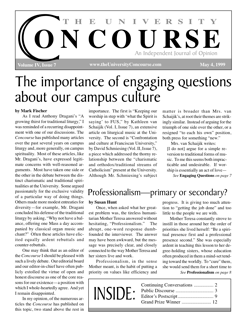A prize winning physicist out of his depth
by Kathleen van Schaijik
A couple of weeks ago there was a much-publicized debate about the existence of God between two eminent physicists, Nobel Laureate Steven Weinburg, an atheist, and former Cambridge University scientist-turned Anglican Priest, John Polkinghorne. Two-hundred and forty professionals in various fields attended and about 60 journalists. According to the account I read, Mr. Weinburg “said that the theologians he talks to are ‘embarrassed by the topic of miracles’ and that without religion there would have been both good and evil people on the planet. ‘For good people to do evil things, that takes religion’.”
Does this remind anyone else of Socrates’ Apology? That’s where Socrates relates that the oracle at Delphi had announced that there was no one wiser than he.
When I heard [this] I said to myself, What does the god mean?...I am only too conscious that I have no claim to wisdom, great or small…After puzzling about it for some time… I interviewed one [reputedly wise] person after another…And by dog, gentlemen, for I must be frank with you, my honest impression was this. It seemed to me, as I pursued my investigations… that the people with the greatest reputations were almost entirely deficient, while others who were supposed to be their inferiors were much better qualified in practical intelligence… I mean that on the strength of their technical proficiency they claimed a perfect understanding of every other subject, however important, and I felt that this error more than outweighed their positive wisdom…
It would have been better for Mr. Weinberg if he had confined himself to physics. Then he may have gone to his grave justly renown for brilliance. Now he looks rather silly.


